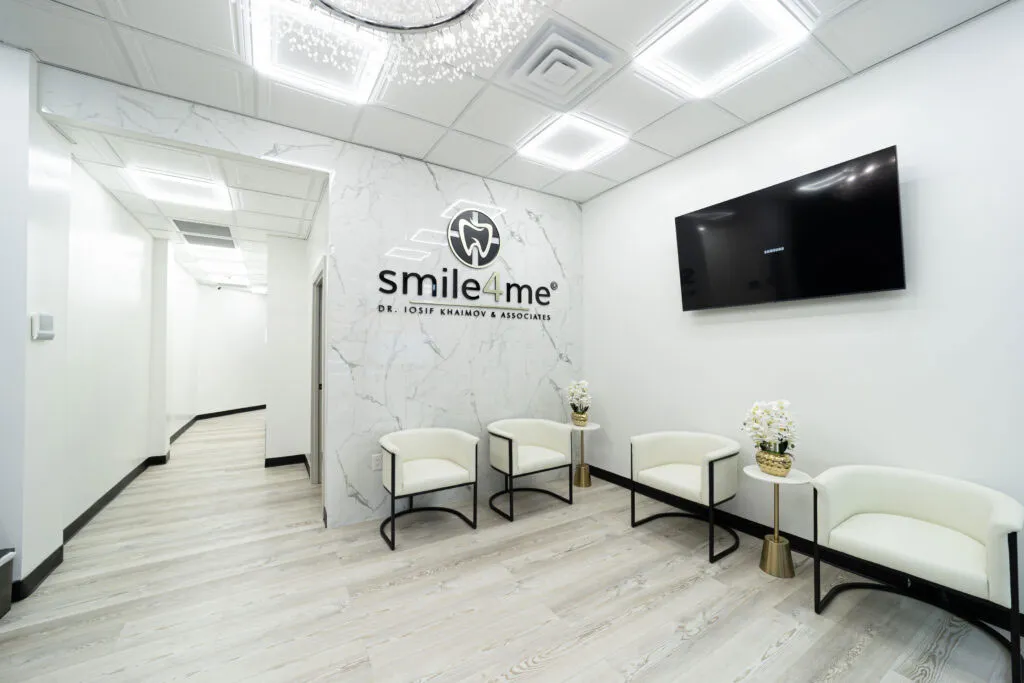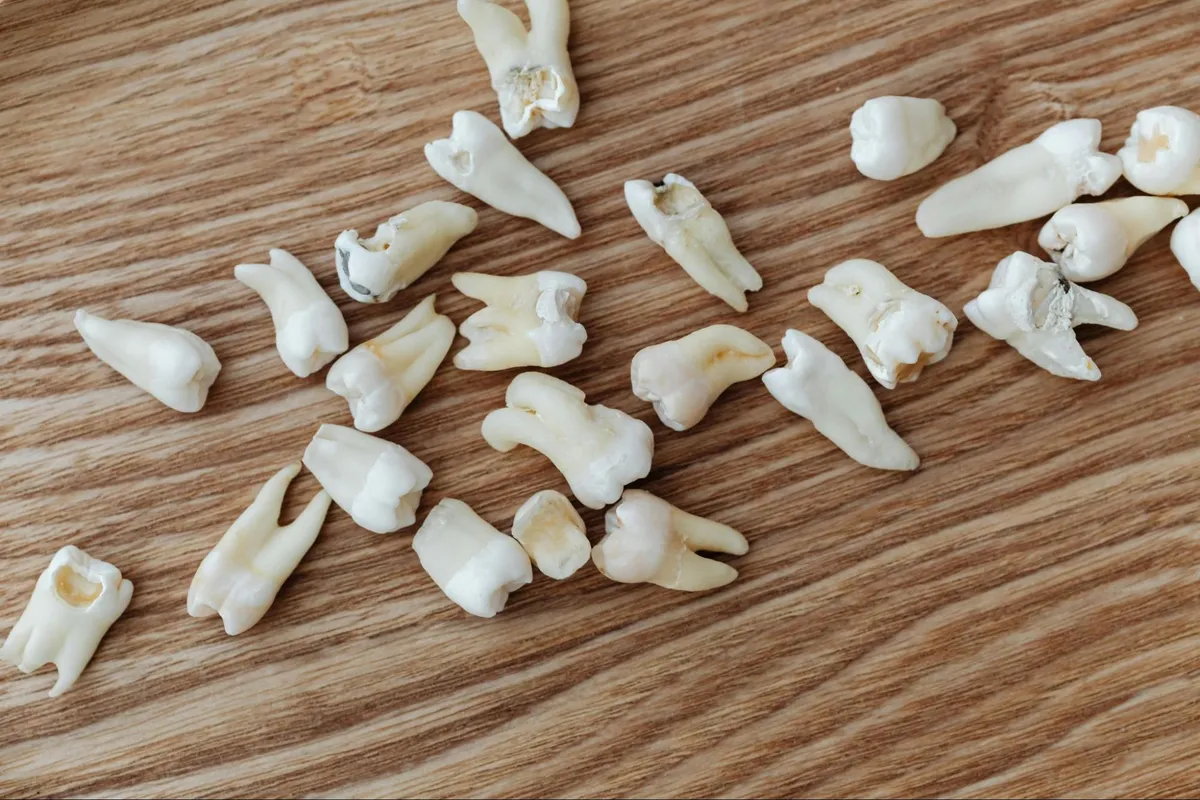Every year, millions of Americans visit the emergency room for dental problems, many of which could be treated more quickly, affordably, and effectively at a local dental office. One common concern people panic over is a chipped tooth. But is a chipped tooth a dental emergency, or can it wait until your next appointment?
In this blog, we'll explain what to do if your tooth cracks, how dentists fix the issue, and how to tell if your chipped tooth is a true dental emergency or not.
What to Do Right After Your Tooth Chips or Breaks
If your tooth just chipped or broke, don't panic. Follow these steps to protect your smile and minimize complications as you prepare to visit your dentist.
Rinse With Warm Salt Water
Rinse your mouth with warm salt water to flush away any debris and prevent bacteria from entering the damaged area. This simple step helps reduce your risk of infection and can soothe irritated tissues. Avoid using alcohol-based rinses, which may aggravate the tooth fracture.
Apply Ice To Reduce Swelling
If your face is swollen or sore after the injury, apply an ice pack on the outside of your cheek in 10-minute intervals. Ice helps reduce inflammation and keeps the area numb while you wait for dental care. Be gentle and don't apply direct pressure to the chipped or broken molar itself.
Contact An Emergency Dentist
Call an emergency dentist immediately if the chip is large, bleeding, or causing severe pain. Delaying care could lead to infection, nerve exposure, or more complicated treatment. At Smile4Me, we offer same-day fractured tooth repair to help preserve your tooth and stop the discomfort quickly.
So, Is a Chipped Tooth a Dental Emergency?

A chipped tooth isn't always a dental emergency, but it can be—especially if it involves pain, bleeding, or a deep crack. Minor chips that don't affect the inner tooth structure may be cosmetic and can often be addressed during a regular dental visit. However, when the pulp is exposed or the break leads to intense discomfort, it should be treated as an emergency to prevent infection or tooth loss.
A broken molar or severe tooth fracture, for example, can leave nerves vulnerable and may require immediate care. So, can a cracked tooth be fixed? Yes! With prompt treatment, procedures such as bonding, crowns, or root canals can restore both comfort and function.
How Does a Dentist Fix a Cracked Tooth?
When you visit the dentist for a chipped or cracked tooth, the treatment depends on the depth of the crack and whether the pulp (nerve) is exposed. Surface cracks or chips that don't affect the nerve may be smoothed or filled with a composite material. More serious cracks that extend deeper into the tooth or below the gumline often require advanced procedures, such as crowns or root canals, to save the tooth. If the damage is too extensive, extraction may be the only option.
Here are a few common ways a dentist may fix a chipped tooth:
- Dental Bonding for Minor Cracks: A tooth-colored resin is shaped and applied to the chipped portion to restore both the strength and appearance of the tooth.
- Crowns for Broken Molars: A custom crown covers and protects the chipped tooth, preventing further damage and restoring its function.
- Root Canal for Exposed Pulp: If the nerve is exposed or infected, the dentist removes it and seals the tooth to prevent further issues.
Smile4Me Dental Care Is Ready to Handle Any Dental Emergency

At Smile4Me Dental Care, we understand how stressful dental emergencies can be, especially when it comes to a chipped, cracked, or broken tooth. That's why our expert team is fully equipped to offer fast, personalized care when you need it most.
Whether you're dealing with sudden pain, bleeding, or damage from a serious accident, we offer advanced treatment options to restore both function and aesthetics. Our goal is to protect your natural teeth, relieve discomfort quickly, and help you leave with your smile intact.
The Most Trusted Emergency Dentist in Astoria
When dental emergencies happen, patients across Queens count on Smile4Me Dental Care for prompt, high-quality service delivered with compassion. Dr. Iosif Khaimov is the top dentist in Astoria, known for his expert care and commitment to long-term oral health.
Here's what makes our emergency care stand out:
- Same-Day Appointments Available: We reserve time every day for urgent visits so you're never left waiting.
- Comprehensive Treatment Options: From fractured tooth repair to root canals and crowns, we handle it all in one place.
- Friendly, Comfortable Environment: Our office is designed to keep you calm, informed, and at ease throughout your visit.
At Smile4Me, you're not just getting treatment, you're getting trusted care from a team that treats you like family.
Accepting Walk-ins Now
While not all chipped teeth are true emergencies, any pain, bleeding, or major fracture should be treated as one. Quick action can prevent infection, save your tooth, and ease discomfort fast. Smile4Me Dental Care provides expert treatment options—whether it's bonding, root canals, crowns, or complete fractured tooth repair—right here in Astoria. Walk into our office today for same-day care. Your smile deserves immediate attention, and we're here to help.
FAQs About Chipped Tooth Emergencies
What should I do if my tooth chipped off for no reason?
Your tooth may have chipped off due to underlying issues such as enamel erosion, decay, or grinding. You should schedule an appointment promptly to prevent further damage or infection.
Is a broken molar considered a dental emergency?
Yes, a broken molar is considered a dental emergency if it causes pain, bleeding, or exposes the inner layers of the tooth, as it can lead to infection and tooth loss without immediate care.
Does a tooth fracture always require immediate treatment?
Not all tooth fractures require urgent care, but any break that causes pain, sensitivity, or structural instability should be evaluated promptly to prevent further worsening of the condition.
Does a cracked tooth need to be pulled if it reaches the gum line?
If a chipped or cracked tooth reaches the gum line, extraction may be necessary; however, your dentist will first assess whether root canal therapy or other restorative options can save it.
